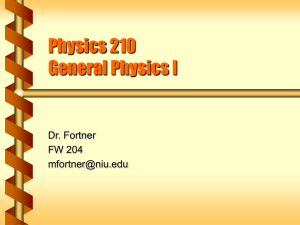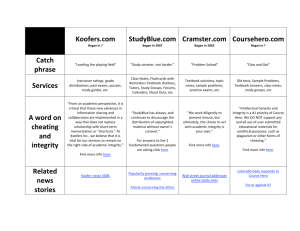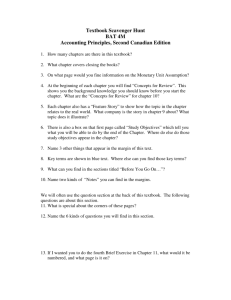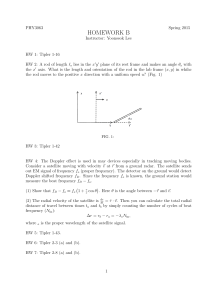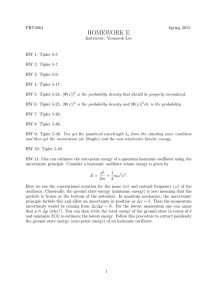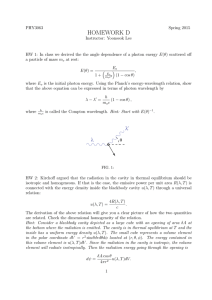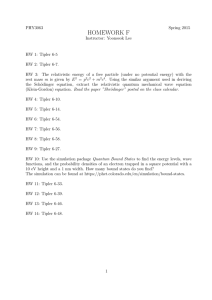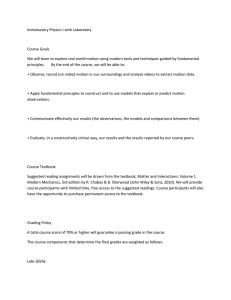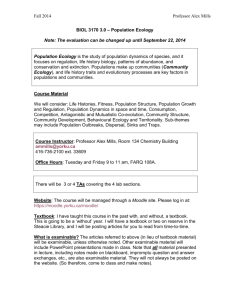AP Physics - expectations
advertisement
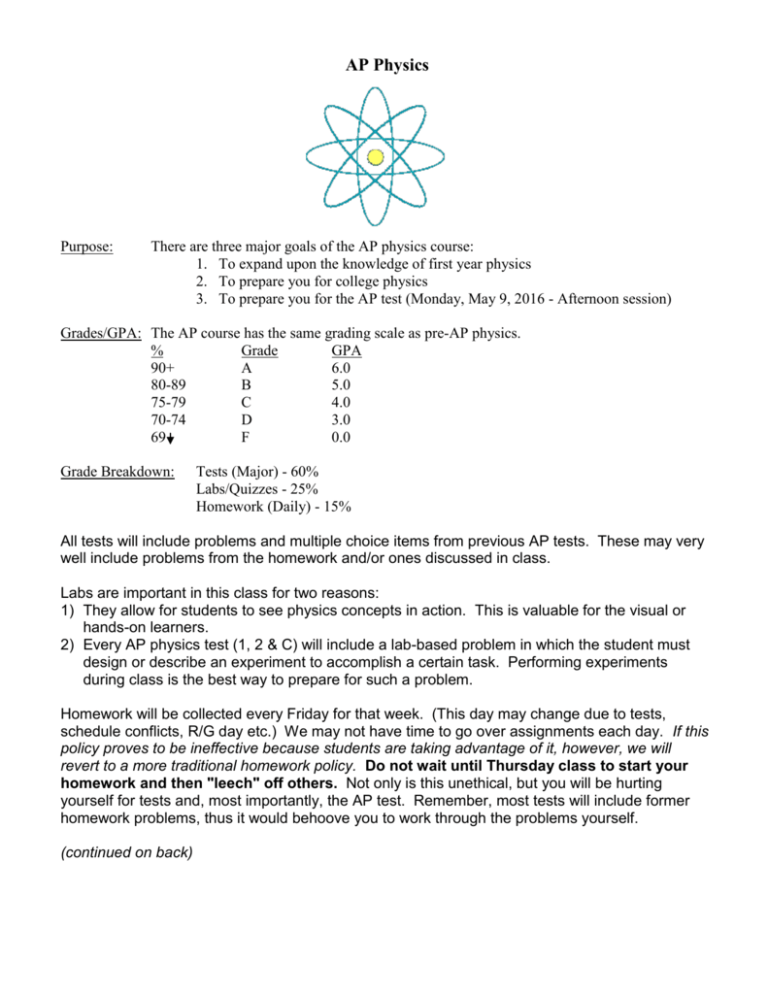
AP Physics Purpose: There are three major goals of the AP physics course: 1. To expand upon the knowledge of first year physics 2. To prepare you for college physics 3. To prepare you for the AP test (Monday, May 9, 2016 - Afternoon session) Grades/GPA: The AP course has the same grading scale as pre-AP physics. % Grade GPA 90+ A 6.0 80-89 B 5.0 75-79 C 4.0 70-74 D 3.0 69 F 0.0 Grade Breakdown: Tests (Major) - 60% Labs/Quizzes - 25% Homework (Daily) - 15% All tests will include problems and multiple choice items from previous AP tests. These may very well include problems from the homework and/or ones discussed in class. Labs are important in this class for two reasons: 1) They allow for students to see physics concepts in action. This is valuable for the visual or hands-on learners. 2) Every AP physics test (1, 2 & C) will include a lab-based problem in which the student must design or describe an experiment to accomplish a certain task. Performing experiments during class is the best way to prepare for such a problem. Homework will be collected every Friday for that week. (This day may change due to tests, schedule conflicts, R/G day etc.) We may not have time to go over assignments each day. If this policy proves to be ineffective because students are taking advantage of it, however, we will revert to a more traditional homework policy. Do not wait until Thursday class to start your homework and then "leech" off others. Not only is this unethical, but you will be hurting yourself for tests and, most importantly, the AP test. Remember, most tests will include former homework problems, thus it would behoove you to work through the problems yourself. (continued on back) Physics 1/2 &C - What's the difference? Both Cover mechanics Cover electricity and magnetism (E/M) PHYS 1/2 Trigonometry-based (no calculus) MANY other topics, including fluids, thermodynamics, optics, gases, nuclear chemistry, etc. PHYS C Calculus-based Mechanics and E/M covered more in depth. Supplies and Books Each student should have a notebook with folders to keep notes and assignments. A calculator is also necessary, any graphing calculator TI-83 and higher will work. In first year physics we did not use our textbook extensively. We will do so in AP physics, so please bring your book to class everyday. AP Physics C will use the book authored by Tipler. If you would like electronic access to the Tipler book: http://ebooks.bfwpub.com/physse6e.php Please bring in a flash drive or CD to get solutions for the textbook and former AP problems that you will get for homework. Another resource available to you for the textbook is Cramster: http://www.cramster.com/physics-for-scientists-and-engineers-6th-solutions-611 HELP AP physics should be a fun course, but it can be a challenging one as well. Please feel free to ask questions. I have a school email address you can use to contact me. (Parents may use it as well.) mdavies@conroeisd.net I recommend that you form a small study group (2-4 people) for physics homework and test preparation. Many students have found this to be helpful in physics, calculus and other subjects. Groupwork will be encouraged in labs and review days. People learn best by teaching others. I will also be available during the school’s evening tutorials from 5:30-7:30 PM on Tuesdays in room 105 (the SCOTS room). I do not expect discipline to be a problem. “That's all I have to say about that.” - Forrest Gump

